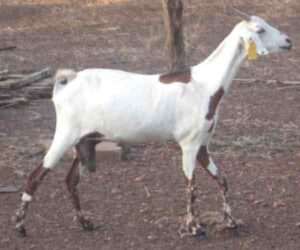A horse farm is a specialized equestrian property for caring and keeping horses. Owning a horse farm is a dream for horse enthusiasts and property investors. The property allows you to remain close to your horses and care for them easily. And your horses can roam freely around the farm. Along with all these features, a horse farm can be a great investment.
You can also turn your hobby farm into a thriving business. Although, finding a horse farm suitable for your needs is not easy. Try to know what to look for when purchasing, and this can be helpful. Here we are trying to list top five factors to consider when buying a horse farm.
1. Purpose of the horse farm
Determine why you need a horse farm, and doing this is key to finding the best property. Ask yourself if you require the property for your hobby or as an investment. If you intend to make money using the horse, there are several business options to look at, including:
- Providing riding lessons for various equestrian sports
- Horse boarding
- Offering instruction and training for clients, horses, or both
- Horse breeding: You can learn how horse breeding is done in other states such as North Carolina, and bring that business model to Atlanta, Georgia. Check out a Horse Farm in NC and learn everything you need to know about horse breeding.
- Running a tourist operation
Once you determine the services you wish to offer, buying a suitable Atlanta becomes easier.

2. Location
Your horse farm’s location shouldn’t be ignored because it is key in determining your property’s convenience and functionality, and also your horse’s well-being. Consider the following factors when looking for a suitable location for your horse farm.
- Soil quality and available pastureland: The soil must be well-drained and nutrient-rich to promote healthy vegetation growth. The farm should also have sufficient pastureland for grazing and your horse’s exercise needs.
- Accessibility to equestrian experts and veterinary services: Proximity to equestrian professionals like farriers and trusted veterinary services is crucial to maintaining your horse’s soundness and health.
- Proximity to equestrian trails and competitions: A good location should have easy access to riding trails and showgrounds.
The best location should also have a dependable supply of hay, bedding resources, and local feed.
3. Zoning regulations and permits
Consider zoning laws which are created by local authorities to regulate land usage and development. They are designed to preserve the community’s welfare, health, and safety. They dictate how properties should be used and the activities permitted on the land. Depending on your location, there might be restrictions on horse farm extension plans or operations. Ensure the horse farm you are buying complies with the local zoning regulations. Based on what you intend to use the property for. Find out the kind of permit you need and abide accordingly.
4. Water drainage
Natural water drainage is another critical factor to consider when buying a horse farm. Without excellent drainage, the land won’t be ideal for your horse to graze. Should you notice muddy lumps in the paddocks, chances are the water drainage in that area isn’t good. You want to ensure rainwater can drain gently into the soil while moving away from buildings. The best horse farm should be in a slightly sloped area to ensure water can drain away naturally.
5. Water supply
Horses require a significant amount of water daily to remain healthy. They require a minimum of five to 10 gallons daily. Ensure the farm you buy has a reliable water supply. Favorable options should have piped water systems from reliable sources like dams and rivers. Adequate water supply makes it easier to:
- Ensure your equine family is always hydrated
- Irrigate pasture
- Keep your stables clean
- Groom the horses
Horse farms are a great investment and ideal for your hobbies. Consider these factors when buying a horse farm. Hope this guide has helped you. Good luck!

